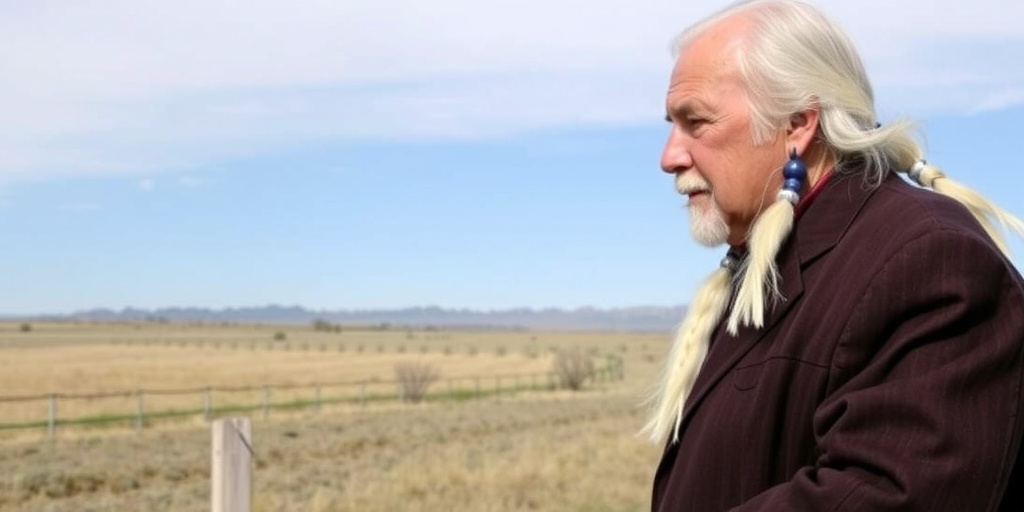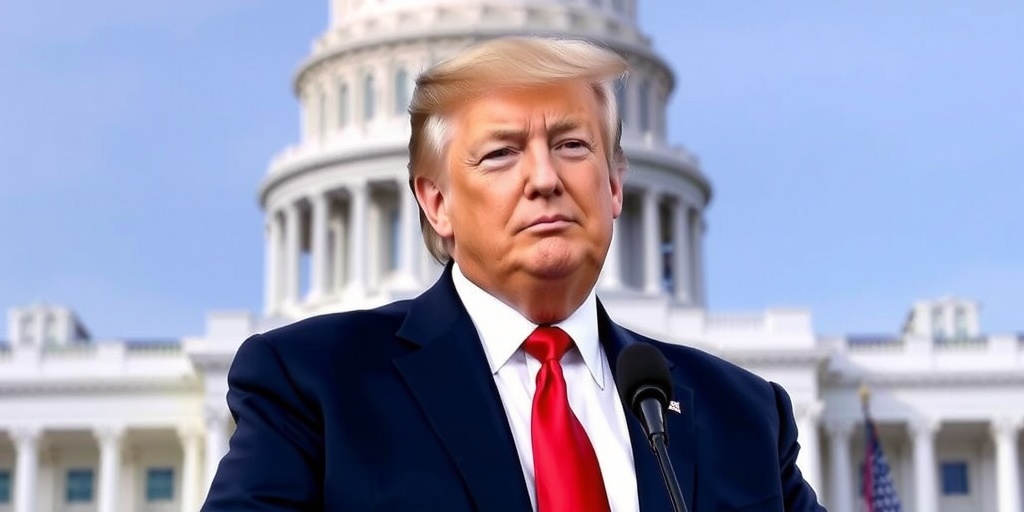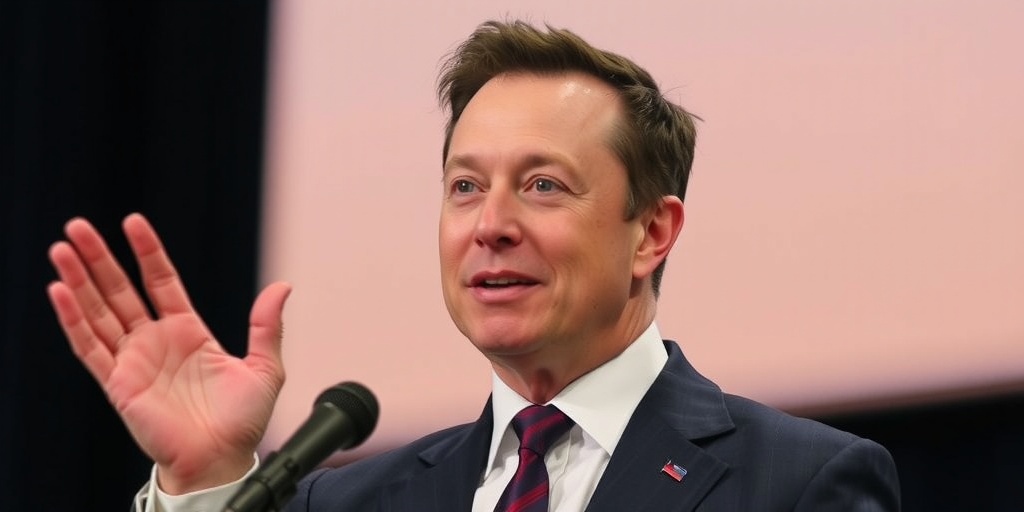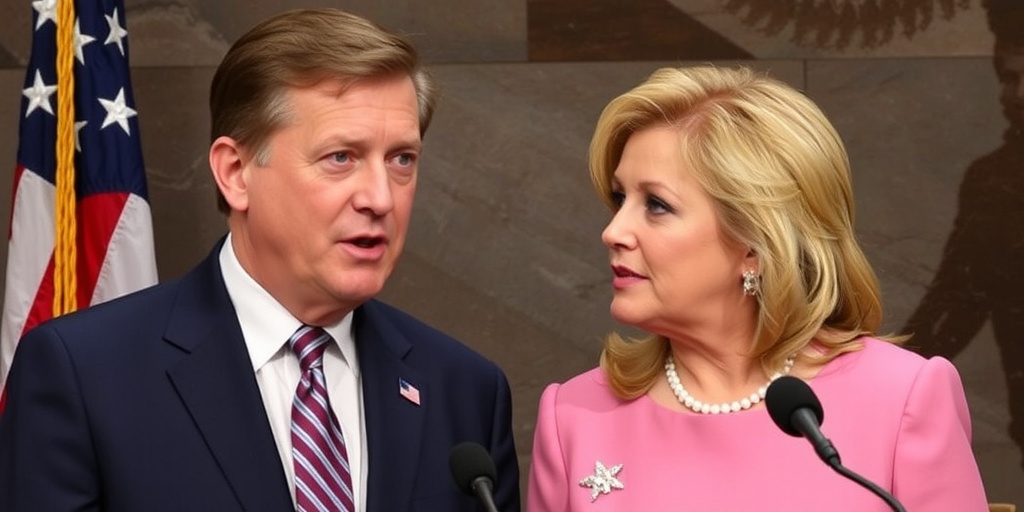Now Reading: Biden Commutes Sentence of Indigenous Activist Leonard Peltier
-
01
Biden Commutes Sentence of Indigenous Activist Leonard Peltier
Biden Commutes Sentence of Indigenous Activist Leonard Peltier

Title: President Biden Commutes Leonard Peltier’s Sentence, Sparking Controversy
In a significant and controversial move, President Joe Biden has commuted the prison sentence of Leonard Peltier, a well-known Native American rights activist who has spent nearly five decades in federal prison. This decision was made in the final moments of Biden’s presidential authority, granting Peltier the opportunity to serve the remainder of his sentence in home confinement. Peltier, now 80 years old, was convicted of murder in connection with the deaths of two FBI agents during a 1975 shootout that also claimed the life of a Native American activist.
Supporters of Peltier, which include tribal leaders, lawmakers, and notable figures from around the globe, have long campaigned for his release. They argue that Peltier was unjustly convicted and subjected to an unfair trial, calling into question the validity of the evidentiary processes that led to his conviction. On the other hand, resistance has come from former and current FBI officials, including the agency’s director, Christopher Wray, who expressed concern that commuting Peltier’s sentence would undermine the sacrifices made by the fallen agents.
Leonard Peltier’s health has severely declined in recent years; he is partially blind and has faced multiple health issues, including COVID-19, an aortic aneurysm, diabetes, and a stroke. Recognizing his deteriorating condition, President Biden stated in the commutation grant that Peltier’s case warranted compassionate release and emphasized the importance of showing mercy to an aging man who deserves to spend his final days with family.
Senator Brian Schatz of Hawaii, the Democratic leader on the Senate Indian Affairs Committee and a longtime advocate for Peltier’s release, praised Biden’s decision. “If there were ever a case that merited compassionate release, Leonard Peltier’s was it,” Schatz remarked. He expressed that the president did the right thing by allowing Peltier to return home to enjoy the companionship of his loved ones during the time he has remaining.
Peltier’s conviction stemmed from a violent confrontation involving federal agents and tribal activists, a tragic event that became emblematic of the struggles faced by Native Americans in their fight for rights and recognition. The case has been marked by claims of prosecutorial misconduct and the exclusion of crucial exculpatory evidence from Peltier’s trial, fueling ongoing debates around his guilt and the integrity of the judicial system.
However, not everyone shares the sentiment of Peltier’s supporters. Natalie Bara, president of the FBI Agents Association, criticized Biden’s decision, referring to it as a "disgraceful act." She insisted that the commutation does not alter Peltier’s guilt while framing it as a betrayal to the families of the slain officers. Bara asserted that it represents a cowardly evasion of accountability and a slap in the face to law enforcement.
Furthermore, FBI Director Christopher Wray reiterated the agency’s opposition to any form of clemency for Peltier, which has often been portrayed as a pivotal moment in the enduring tension between law enforcement and Native American rights activism. South Dakota Attorney General Marty Jackley also voiced his strong opposition to the commutation, echoing sentiments shared among current FBI officials.
As the Biden administration entered its final days, the push for Peltier’s release gained momentum. Tribal leaders and Democratic lawmakers intensified their calls for clemency, urging the president to act on behalf of a man they believe is not only a political prisoner but also a symbol of the broader fight for Native American rights.
Peltier has been repeatedly denied parole over the years, including a recent denial in July. However, his supporters assert that his significance extends beyond personal freedom; it embodies a larger struggle for the rights and dignity of Indigenous people across America. Nick Tilsen, the founder of NDN Collective, an organization dedicated to Indigenous rights, remarked, “It wasn’t just about his freedom. It was about freedom for Indian people.”
The case of Leonard Peltier continues to evoke strong emotions and diverging opinions, marking a key chapter in the ongoing discourse surrounding justice, accountability, and the rights of Indigenous peoples in the United States. As he prepares to transition to home confinement, Peltier’s legacy, intertwined with the complexities of American history and Indigenous rights, will undoubtedly remain a topic of debate and discussion for years to come.
Stay Informed With the Latest & Most Important News
Previous Post
Next Post
-
 01New technology breakthrough has everyone talking right now
01New technology breakthrough has everyone talking right now -
 02Unbelievable life hack everyone needs to try today
02Unbelievable life hack everyone needs to try today -
 03Fascinating discovery found buried deep beneath the ocean
03Fascinating discovery found buried deep beneath the ocean -
 04Man invents genius device that solves everyday problems
04Man invents genius device that solves everyday problems -
 05Shocking discovery that changes what we know forever
05Shocking discovery that changes what we know forever -
 06Internet goes wild over celebrity’s unexpected fashion choice
06Internet goes wild over celebrity’s unexpected fashion choice -
 07Rare animal sighting stuns scientists and wildlife lovers
07Rare animal sighting stuns scientists and wildlife lovers





















